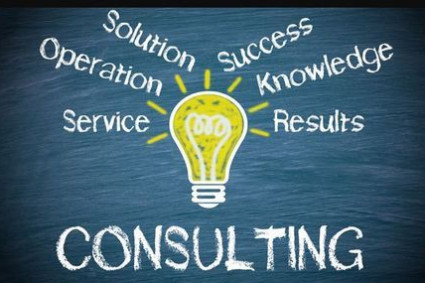
Are you an SME owner looking to navigate the complex world of green regulations? Picture this: You're a passionate entrepreneur committed to running a sustainable business. But as you delve deeper into the realm of environmental, social, and governance (ESG) requirements, you find yourself lost in a sea of acronyms, jargon, and legalities. It can be overwhelming, right? Well, fret not! Our article "ESG Consultants as Guides in Navigating Green Regulations for SMEs" is here to offer solace to your green-conscious soul. In this comprehensive guide, we'll walk you through the often-confusing landscape of ESG regulations, highlight the pain points faced by SMEs, and provide expert insights on how ESG consultants can be your guiding light. So, if you're ready to unravel the mysteries of going green without getting tangled up, read on and let's embark on this eco-friendly journey together.
Table Of Contents
- Understanding the Importance of ESG for SMEs
- Exploring Green Regulations Relevant to SMEs
- Navigating ESG Compliance Challenges for SMEs
- The Role of ESG Consultants in Assisting SMEs
Short Summary
- ESG consultants can help SMEs navigate the complex world of green regulations.
- SMEs often face challenges understanding and complying with ESG requirements.
- ESG consultants provide expert insights and guidance to SMEs in adopting sustainable practices.
- With the help of ESG consultants, SMEs can effectively implement ESG strategies and improve their environmental, social, and governance performance.
Understanding the Importance of ESG for SMEs
In today's business landscape, environmental, social, and governance (ESG) considerations have become increasingly important. SMEs, or small and medium-sized enterprises, play a significant role in the economy, and understanding the importance of ESG is crucial for their success and sustainability. Here are key points to consider:
1. Green regulations and their impact on SMEs
As governmental bodies and regulatory organizations around the world strive to address environmental challenges, they have implemented various green regulations. These regulations aim to reduce carbon emissions, promote sustainable practices, and improve societal well-being. SMEs need to understand and comply with these regulations to operate responsibly and avoid potential penalties and reputational damage.
"Green regulations are not mere constraints; they present an opportunity for SMEs to make a positive impact on the environment while boosting their competitiveness." (Source: ESG Today)
2. Financial benefits of ESG for SMEs
Embracing ESG practices can have significant financial benefits for SMEs. By integrating sustainability into their operations, SMEs can reduce costs through energy and resource efficiency measures. They can also attract socially responsible investors who are increasingly seeking out companies with strong ESG performance. Additionally, customers are becoming more environmentally conscious, and SMEs with sustainable practices may gain a competitive advantage in the market.
3. Enhancing brand reputation and customer loyalty
Implementing ESG practices can enhance the brand reputation of SMEs and foster customer loyalty. Consumers today expect companies to be socially and environmentally responsible. SMEs that prioritize ESG considerations can build trust with their customers, who are more likely to support businesses that align with their values. Positive brand reputation and customer loyalty can lead to increased sales, customer retention, and positive word-of-mouth referrals.
4. Mitigating risks and future-proofing the business
ESG practices help SMEs mitigate various risks associated with environmental, social, and governance factors. By proactively addressing issues such as climate change, employee well-being, and ethical business practices, SMEs can reduce potential liabilities and adapt to evolving stakeholder expectations. Taking a long-term view and future-proofing the business against emerging risks can ensure sustained growth and resilience.
Exploring Green Regulations Relevant to SMEs
Green regulations and sustainability requirements are becoming increasingly important for businesses, including small and medium-sized enterprises (SMEs). To ensure compliance and navigate this complex landscape, it is important for SMEs to understand the specific green regulations that apply to their industry. ESG consultants can play a crucial role in guiding SMEs through this process.
1. Identifying Applicable Regulations:
ESG consultants can assist SMEs in identifying the relevant green regulations that they need to comply with. This involves conducting a thorough assessment of the industry and understanding the specific environmental standards, certifications, and reporting requirements that apply. By having a clear understanding of these regulations, SMEs can take proactive steps to meet the necessary compliance standards.
2. Assessing Impact on Operations:
Once the applicable regulations are identified, ESG consultants can help SMEs assess the impact of these regulations on their day-to-day operations. This may involve evaluating current practices, policies, and procedures to determine areas where improvements are needed to align with sustainability goals. ESG consultants can provide practical recommendations to minimize environmental impact while maximizing operational efficiency.
Key areas where ESG consultants can assist in assessing impact on operations:
- Energy consumption and efficiency
- Waste management and recycling practices
- Green supply chain management
- Water usage and conservation strategies
- Carbon footprint reduction initiatives
3. Developing Compliance Strategies:
ESG consultants can work closely with SMEs to develop tailored compliance strategies that align with their business objectives. This may include implementing sustainable practices, streamlining processes, and integrating green initiatives into the overall business strategy. By collaborating with ESG consultants, SMEs can ensure that compliance with green regulations becomes an integral part of their organizational culture.
4. Providing Ongoing Support:
Green regulations are continuously evolving, and it can be challenging for SMEs to keep up with the latest updates. ESG consultants stay up-to-date with changing regulations and can provide ongoing support to SMEs, ensuring that they remain compliant and informed about any new requirements. This ongoing partnership helps SMEs stay ahead of the curve and adapt their sustainability initiatives as needed.
Navigating ESG Compliance Challenges for SMEs
Small and medium-sized enterprises (SMEs) play a vital role in the global economy, but when it comes to environmental, social, and governance (ESG) compliance, they often face unique challenges. Navigating the complex landscape of green regulations can be overwhelming, especially for SMEs with limited resources and expertise. However, with the guidance of ESG consultants, these challenges can be effectively addressed and overcome.
1. Understanding the ESG Compliance Landscape
To navigate ESG compliance challenges, SMEs must first gain a comprehensive understanding of the regulatory landscape. ESG consultants help SMEs identify relevant regulations and standards that apply to their industry and location. They stay up-to-date with evolving regulations and can provide guidance on how to interpret and apply them effectively. By ensuring SMEs have a clear understanding of the rules, ESG consultants help them avoid compliance pitfalls and reduce the risk of penalties or reputational damage.
2. Developing Tailored ESG Strategies
ESG consultants work closely with SMEs to develop tailored ESG strategies that align with their unique business goals and values. They conduct thorough assessments of the company's current practices and identify areas for improvement. This may involve implementing measures to reduce carbon emissions, enhancing supply chain transparency, or promoting diversity and inclusion within the organization. By addressing specific ESG challenges, SMEs can enhance their reputation, attract socially-conscious investors, and gain a competitive edge in the market.
3. Building Internal Capacity
SMEs often lack in-house expertise and resources to effectively manage ESG compliance. ESG consultants bridge this gap by providing training, workshops, and guidance to build internal capacity. They empower SMEs to establish robust ESG management systems, monitor performance, and report on key indicators. By embedding ESG thinking into the company's culture, SMEs can create a sustainable business that embraces responsible practices at every level.
4. Accessing Networks and Resources
ESG consultants have extensive networks and access to valuable resources that can benefit SMEs. They connect SMEs with relevant industry associations, investors , and other stakeholders who can provide support and guidance on ESG compliance. Additionally, ESG consultants stay informed about the latest trends, best practices, and emerging technologies in sustainability. They can share this knowledge with SMEs, helping them stay ahead of the curve and tap into new opportunities for growth and innovation.
5. Measuring and Reporting Impact
Measuring and reporting ESG impact is essential for SMEs to demonstrate their commitment to sustainability and attract stakeholders. ESG consultants assist SMEs in developing appropriate measurement frameworks and reporting mechanisms to track their progress and communicate their achievements effectively. By quantifying and disclosing their environmental and social performance, SMEs can enhance their credibility, build trust with stakeholders, and differentiate themselves in the marketplace.
The Role of ESG Consultants in Assisting SMEs
As small and medium-sized enterprises (SMEs) increasingly recognize the importance of incorporating environmental, social, and governance (ESG) practices into their operations, they often face complex regulations and compliance requirements. This is where ESG consultants play a crucial role in guiding SMEs through the intricate landscape of green regulations. With their expertise in ESG principles and deep understanding of the regulatory environment, these consultants provide valuable assistance to SMEs striving to navigate and adhere to green regulations.
1. Expert Knowledge and Guidance:
ESG consultants bring a wealth of experience and expertise in sustainability practices and regulatory frameworks. They stay abreast of the latest developments in green regulations, ensuring SMEs have access to up-to-date guidance. By analyzing the unique needs and challenges of each SME, consultants can provide tailored solutions and help devise actionable strategies to ensure compliance with ESG regulations. Their knowledge and guidance are invaluable for SMEs aiming to integrate sustainable practices into their business model.
2. Assistance in Developing Sustainable Policies and Programs:
ESG consultants work closely with SMEs to develop comprehensive sustainability policies and programs. Through thorough assessments and audits, consultants identify areas for improvement and offer practical recommendations to enhance ESG performance. They assist in setting achievable goals and realistic timelines to implement and monitor sustainability initiatives. By aligning SMEs with international standards and best practices, ESG consultants help these businesses establish a solid foundation for long-term growth and sustainability.
3. Strengthening Stakeholder Relationships:
ESG regulations often require SMEs to engage with a wide range of stakeholders, including suppliers, customers, investors, and local communities. ESG consultants provide guidance on effective stakeholder engagement strategies, ensuring that SMEs build strong relationships based on transparency, accountability, and trust. By fostering open communication and collaboration, consultants help SMEs navigate intricacies of stakeholder expectations, ultimately enhancing the reputation and credibility of the business.
4. Training and Capacity Building:
ESG consultants understand that successful integration of sustainable practices requires a culture of continuous learning and development. They offer training programs to empower SMEs and their employees with the knowledge and skills needed to implement ESG initiatives effectively. Consultants conduct workshops and provide educational resources to enhance awareness and facilitate the adoption of sustainable practices across all levels of the organization. This focus on capacity building enables SMEs to become self-sufficient in maintaining their ESG performance in the long run.
Conclusion
As SMEs, you are undoubtedly aware of the impending green regulations that are set to be implemented in the coming years. Green regulations can be a major challenge for any business, but they are also an opportunity to improve the sustainability of your company and increase your bottom line. ESG Consultancy services can help you to navigate these regulations and to take advantage of the opportunities that they present.





